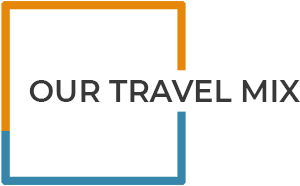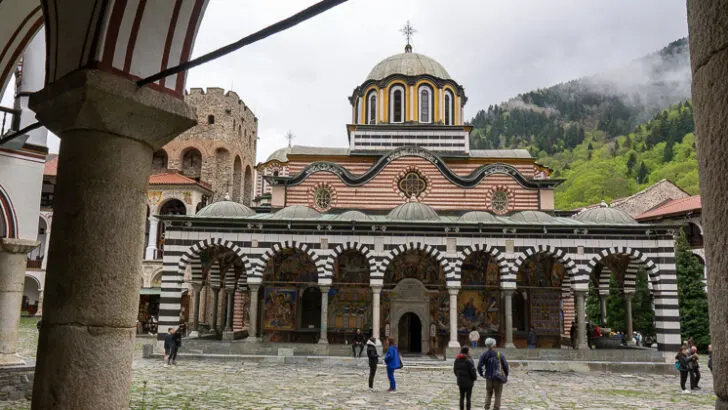Bulgaria is an amazing country sitting right between Turkey, Serbia and North Macedonia, and bordered by the picturesque Black Sea on the eastern coast.
The Black Sea transforms Bulgaria into a gorgeous beach destination, whilst the mountainous interior offers scenic hikes and some of Europe’s best (and most affordable) ski resorts.
The cities of Plovdiv, Sofia and Veliko Tarnovo offer modern amenities and restaurants nestled amongst the remains of a rich and colourful history spanning 6,000 years. From the hard-to-miss communist-era buildings to the ancient ruins from the Thracian tribes and the Roman Empire.
Bulgaria isn’t the most visited country in Europe, but it’s one of our favourites and this just makes it even more appealing for tourists seeking to escape the crowds.
We’ve put together this guide to help you plan and get the most out of your trip, so read on for everything you need to know.
Bulgaria Travel Guides
This travel guide is designed to be an overview and is your ideal starting point for planning the perfect trip to Bulgaria. As you delve deeper into this stunning country, you’ll want to explore some of these in-depth guides (below) on specific cities or other important aspects of travel in Turkey.
24 BEST Things to Do in Sofia in 2024
The Perfect Bulgaria Itinerary
For many travellers, Bulgaria is a stopping point between Turkey, Macedonia and Serbia, which we think is great! If you only have 2 – 3 days then you’ll need to pick either Sofia or Plovdiv. Both are amazing cities so we couldn’t choose.
Instead, we think it’s a good idea to visit both. This would require at least 4 days but 6 – 7 days would be perfect.
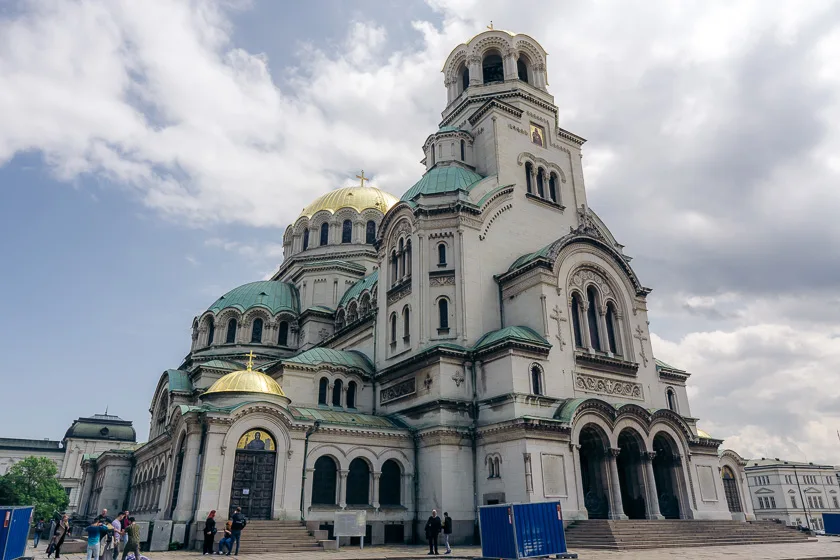
We added Veliko Tarnovo as it’s a super cute town and one of the oldest in Bulgaria. If you’re coming from or heading to Serbia then spending a day here is a must, otherwise you could definitely skip it.
Taking into account geographic proximity and the number of things to do in each location, here is our recommended guide:
3 days: Sofia (must-do)
+3 days: Plovdiv (must-do)
+1 day: Veliko Tarnovo
1 week is the perfect amount of time to spend in Bulgaria in order to see the must-visit sights. If you have extra time we’d usually recommend exploring other nearby countries such as Turkey, Albania, Serbia or North Macedonia. However, if you rent a car you could explore along the coast of the Black Sea or spend some time in the Rhodope Mountains.
Top Travel Tip!
We’ve been using Wise travel card to pay for EVERYTHING while we travel all around the world! Trust me, it’s better than your bank card and it costs less than $10 then it’s free forever.
Things to Do in Bulgaria
Bulgaria’s definitely got a more local vibe than a lot of other countries. Sure, it has tourist attractions but it’s not designed for tourism. The cities are designed for living first and foremost.
However, it’s for this reason that there are so many great things to see and places to visit throughout Bulgaria. Here’s a list of our top 10:
- Rila Monastery
- Free Sofia Tour & Free Plovdiv Tour
- Bachkovo Monastery
- Alexander Nevsky Cathedral
- Belogradchik Rocks
- Visit Veliko Tarnovo
- Buzludzha Monument
- Bishop’s Basilica Museum
- Asen’s Fortress
- Seven Rila Lakes
For a more detailed list make sure to check out our guide to the best things to do in Sofia!
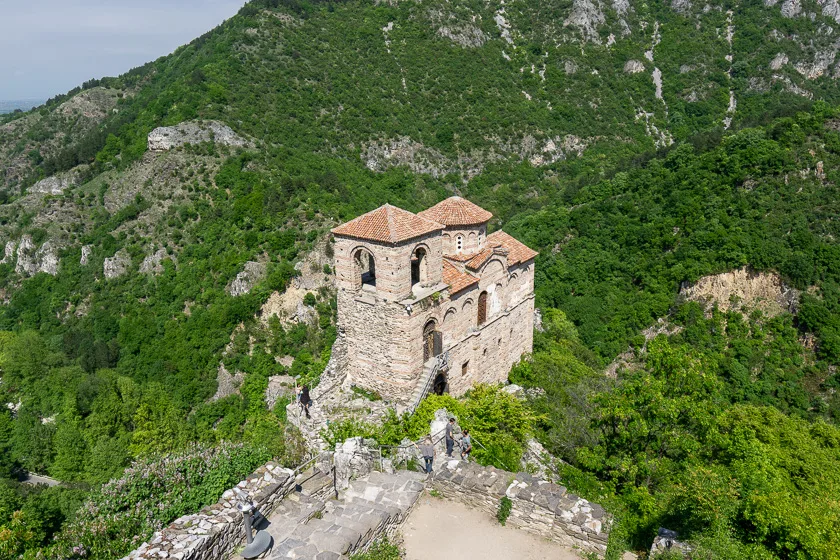
Bulgaria Accommodation
We’ve stayed at some amazing hostels and accommodation in Bulgaria. We were surprised to find that eating out and activities was quite expensive in Bulgaria, however, the accommodation was cheap!
Expect to pay about 25 BGN (13 EUR) for a dorm bed, or 50 BGN (25 EUR) for a private room.
Here are some of the spots we recommend. We’ve either stayed here personally or heard great things from other travellers so we’re confident in our recommendations.
Sofia
Budget & Mid-Range: Hostel N1 – Rules. A LOT of rules. No drinking, quiet after 10pm, extra charges for things you’d get for free at other hostels. However, Nina was such a kind owner and the place was really great. If you’re looking for a quiet hostel where the other guests are generally all nice people, then Hostel N1 is for you. You’ll meet other travellers, but be able to sleep early.
Budget & Mid-Range: Hostel Mostel – If you’re after a bit more of a vibe then Hostel Mostel is the place for you. If not for the single fact that you’re allowed to drink at the hostel. Velin, the owner of Ginger House in Plovdiv, recommended Hostel Mostel, as did a bunch of other travellers we met in Plovdiv. It’s probably the best pick in Sofia.
Plovdiv
Budget & Mid-Range: Ginger House – We stayed here and it was one of the best places we’ve stayed. The owner, Velin, was the kindest and most helpful hostel owner we’ve ever met. The rooms are clean and basic but it’s Velin who makes this place so amazing. Stay here! The vibe was quiet but we met a lot of cool people staying here.
Budget & Mid-Range: Hostel Old Plovdiv – We didn’t stay here but we met a lot of other travellers who did. It has more of a vibe than Ginger House and is in a better location. If you’re wanting somewhere with a buzzier atmosphere then try this.
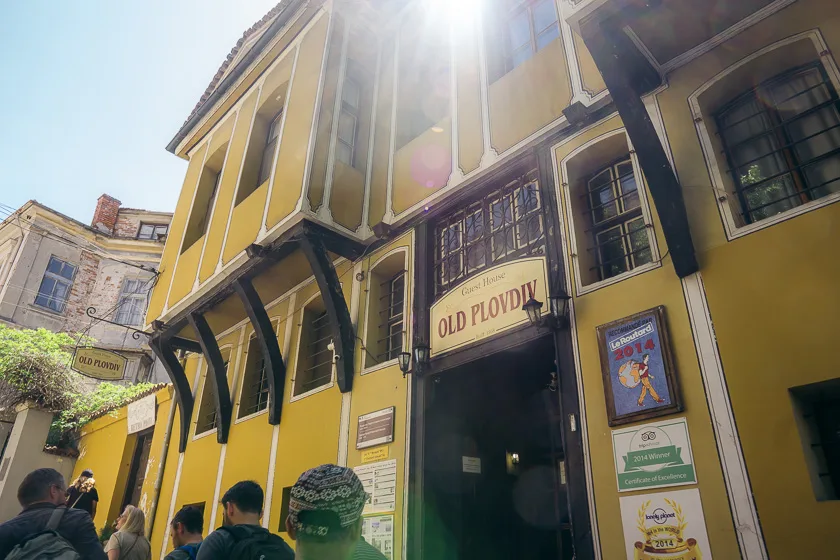
Bulgaria Travel Tips
- If your phone supports eSims, buy your sim card online here with Airalo. It’s a lot easier than buying it after you arrive.
- Use the trains when you can. They are more comfortable than the buses.
- If you don’t already have one, get a Wise Card to use when buying things or withdrawing cash in Turkey.
- Try to avoid using taxis where possible. If you need to, ensure it’s an official Yellow taxi and that they run the metre. We’ve heard a lot of stories of unscrupulous taxi drivers.
- Consider learning the Cyrillic alphabet or be prepared to use the Google Translate app on your phone to be able to read anything.
- Have some conservative clothing to wear to the churches and monasteries. We went on a tour to Rila Monastery and one guy in the group was unable to go inside the main church because he was wearing shorts.
- We recommend using either Postbank or Ziraat Bankasi ATMs. If you need to use another ATM, just make sure you use a bank ATM in a safe area. The ATM will tell you if there are any fees before you complete your transaction and you can cancel and try another ATM if you are unhappy with the fee. Always decline ‘currency conversion’ if it asks you.
- Bulgarians nod for no and shake their head for yes. However, it’s basically impossible to train yourself to reverse this.
- Always keep a couple of lev in coins in your pocket to access the bathrooms.
- Do the free walking tours in Sofia and Plovdiv. However, they are not actually free. They are only free if you don’t like the tour. If you find it good (which we’re sure you will), then you should tip whatever amount you can afford. Standard is 10 to 20 LEV. If you’re backpacking then we reckon 10 LEV is perfectly fine, if you’re on a higher budget then share a little more.
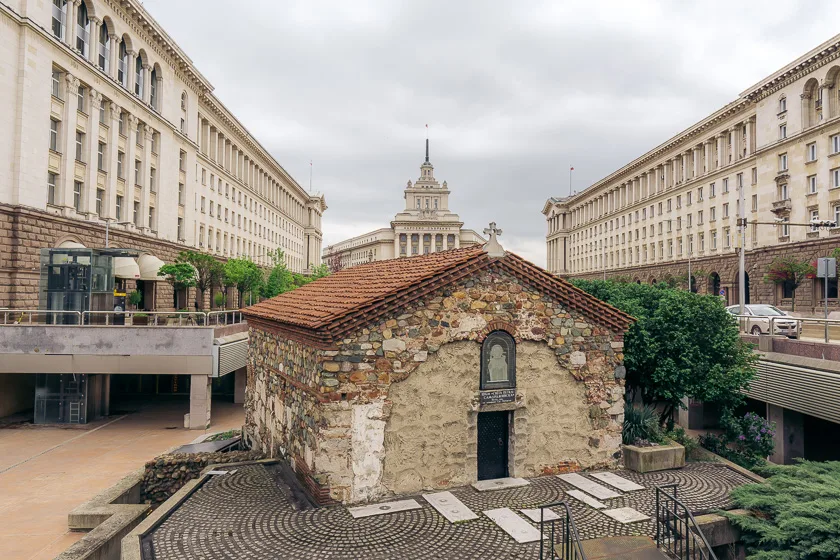
Best Time to Visit Bulgaria
The best time to visit Bulgaria is during summer, from May until August, as the weather during these months is a lot warmer. Visiting outside of these months will be a lot colder and would make exploring some of the natural attractions more challenging.
The Rila Lakes, for example, can’t be visited outside of summer. Conversely, if you enjoy skiing or snowboarding, visiting Bulgaria during winter will be a rewarding experience with some great ski resorts located near Sofia.
Getting Around Bulgaria
Getting around Bulgaria is quite simple but can be a bit more challenging than other countries. In most cases we’d recommend picking up your ticket for onward travel when you arrive in a city as online systems aren’t very reliable here.
Local buses are much harder to use if you don’t know how to read the Cyrillic alphabet. Your best option will be to ask people if the bus goes where you want it to. Other passengers are more likely to be helpful than the driver.
Buses
There’s a good chance you won’t need to catch a normal bus in Bulgaria. Shorter trips (such as Plovdiv to Asenovgrad) tend to be operated by vans called dolmus’. They’re usually okay but knowing when and where the bus is heading can often be challenging, so as above, ask questions.
Flights
The main airports in Bulgaria are located in Sofia and Plovdiv and are operated by the standard carriers including budget airlines such as Ryan Air. This makes Bulgaria very accessible from other countries in Europe.
You won’t require flights within Bulgaria as the country is so small.
Trains
Trains are usually the best way to get between the cities in Bulgaria. They are also a great way to get to neighbouring countries such as Turkey, however, they can be a bit more expensive than buses.
The common route between Plovdiv and Sofia is best taken by train. The train is really easy to catch and relatively comfortable, if not as modern or flash as other countries in the EU.
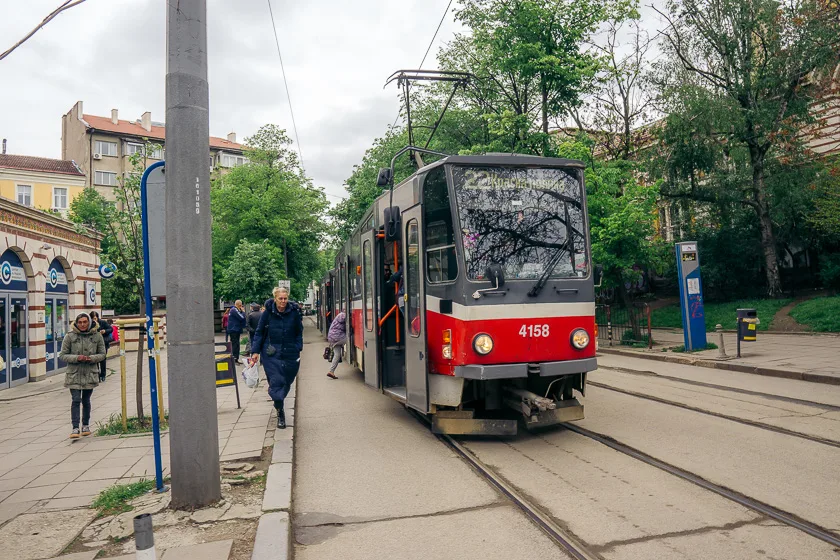
Rental Cars
We wouldn’t recommend renting a car for most travellers visiting Bulgaria. The cities are easily walkable and the main attractions are usually best visited either by public transport or on a tour.
If you have more time than usual in Bulgaria then you could rent a car and go on a road trip around the country. There are a lot of hidden gems that are much easier to reach with your own car. Exploring the Rhodope Mountains and visiting Buzludja monument are two examples. It would also make visiting the towns near the Black Sea a lot easier.
Food & Restaurants in Bulgaria
Bulgarian food is delicious! Especially when you find an amazing homestyle spot such as Магданоз in Sofia. Unfortunately, understanding the Cyrillic alphabet as well as the names of the dishes can be quite challenging.
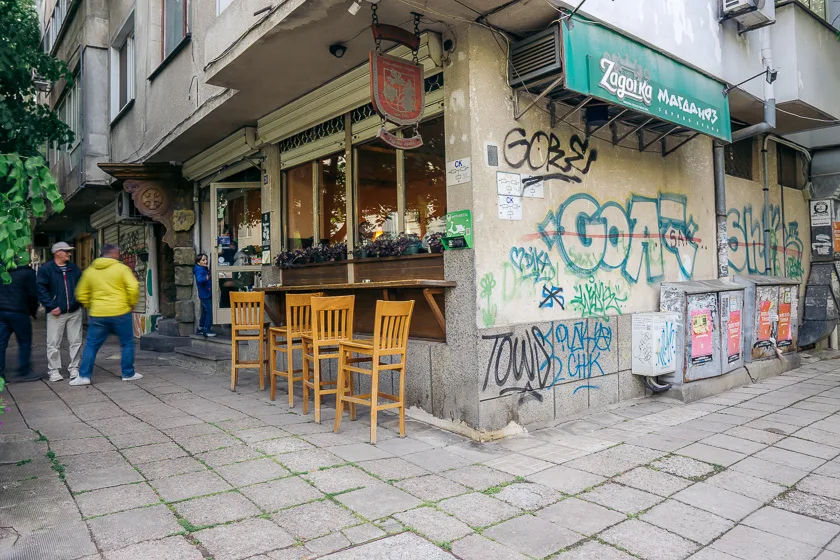
In the first instance, ask the staff about the menu as we’ve usually found them extremely happy to chat (including in English). If that doesn’t work, Google Translate is pretty helpful.
A lot of the dishes are very similar to Turkey with Kebabs found all over the country. They’ve also adopted typical European cuisine such as pizzas, sandwiches, pasta and burgers. The pizza is pretty good and extremely cheap.
A slice of pizza is around 3 LEV, a coffee is about 4 LEV, a beer 5 – 6 LEV, a good wine 8 – 10 LEV and a burger 13 – 15 LEV. The restaurant we mentioned above was about 10 LEV per person or 16 LEV with a drink.
Travel Information
Currency: Bulgarian Leva (LEV
Electricity Socket: 220V AC electricity using a standard Europe Type C plug (two prongs)
Bulgaria Visa: Many countries do not require a visa to visit Bulgaria whilst many do. You should find your country on the official page here to find out what you require. If you have a Schengen visa then you will not require a visa to enter Bulgaria. Note: Bulgaria is not part of Schengen.
Safety: We’ve found Bulgaria to be a very safe country. Following standard safety measures is a good idea. Pickpocketing isn’t unheard of in Sofia. Check out your local travel advisory before visiting, such as the US one here.
Language: Bulgarian is the official language of Bulgaria. A lot of people speak fluent English in Bulgaria, so feel free to try speaking English to anyone if you don’t speak Bulgarian. They cyrillic alphabet makes reading quite difficult so make use of the Google Translate app for supermarkets, buses, etc.
Turkish Capital: The capital of Bulgaria is Sofia.
Water: To be a member of the EU the tap water must be safe to drink. It is safe to drink the tap water in Bulgaria, however, it usually doesn’t taste good. We still recommend drinking it, or seeking out the public taps which are natural mineral water and are also safe to drink (and apparently ‘healing water’).
Banks & ATMs: You’ll find many banks and ATMs around Bulgaria. Most of them are fine to use, but if you wish to avoid fees then we recommend withdrawing cash from PostBank ATMs. These are found commonly all around the country and we’ve never been charged a withdrawal fee.
The best card to use when travelling is the Wise Card. This card has the lowest conversion fees of any we’ve found and it’s been our main card for years.
Sim Cards: Sim Cards are cheap in Bulgaria. If you have a new phone you should use an esim such as Airalo. This will be the cheapest and easiest (trust me, it’s easier than it looks) option in Bulgaria. Check it out here.
If your phone doesn’t support esims, then fortunately sim cards are pretty cheap and easy to acquire. We recommend the 10 LEV sim from Vivacom which comes with 6GB of data. Note that EU sim cards will work in Bulgaria and vice versa.
Tipping: Tipping isn’t common or expected in Bulgaria. If you receive good service from a waiter or waitress in a restaurant it can be nice to tip. You don’t typically tip the owner of a shop.
